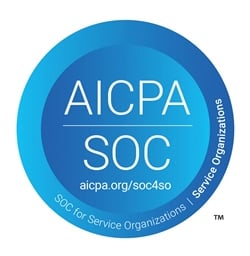With the Data Act, Europe reinforces the critical role of regulated data exchange to strengthen its leadership and stimulate the economy.
Facilitating the circulation of non-personal data is one of the European Union’s major challenges, impacting the overall value creation as well as the efficiency of the modern society as a whole.
The volume of data is constantly increasing, expected to reach 175 zettabytes in 2025, while the amount of data generated by IOT should reach 22.3 billion by 2024. However more than 80% of industrial data remains today unused, mainly due to a lack of facilitated access.
A proposal for the Regulation on harmonized rules on fair access to and use of data, called the Data Act has been published by the European Commission on February 23, 2022. Its measures are looking at overcoming this obstacle of accessing industrial data with one essential pillar: granting organizations and consumers the control over who can access their data, for which purpose, in order to create a fair and innovative European economy.
As part of the proposed measures, the Data Act calls for :
- The access to generated IoT data being facilitated to boost data-driven innovative services development,
- The SMEs’ negotiating power being rebalanced to prevent contractual misconducts in data exchange contracts,
- The public sector bodies access to data held by companies being allowed in case of public emergencies situations,
- The new rules for data and cloud interoperability being defined to simplify cloud and edge service providers switch,
- The unlawful data access and transfer by non-EU governments being safeguarded.
As the Data Act stresses the importance of accessing industrial data and in particular IoT data, this implies bringing fluidity to their circulation and building trust between players engaged in the flows. This is the whole purpose of a Data Exchange Platform: facilitating data circulation by bringing together data acquirers and data providers on a trusted and secure environment where each one can access, source, distribute and exchange data in compliance with regulations; granting the necessary level of governance and traceability to keep control over who accesses the data, for which purpose.
Today, Data Exchange is increasingly part of organizations’ agendas, carrying the objective of leveraging the richness of industrial data. As the power of data is boosted by its ability to circulate, organizations see the benefits of gathering their ecosystem in secure data sharing platforms to build strong data partnerships and capitalize on the full value of data.
Depending on their business objectives and data exchange strategy, some organizations want to be at the center of their data ecosystem by becoming the orchestrator of their own Data Exchange Platform, in white label mode. Leveraging Dawex technology, they benefit from the most secure and trusted environment, with the highest level of governance and traceability over the data transactions. By relying on advanced technical data infrastructure, participants in the exchange remain in full control over who can access their data, for which purpose, under which licensing model, while preserving being in compliance with regulations.
Through several initiatives, Europe has been reinforcing its engagement and leadership in building and developing a strong, regulated data economy. The Gaia-X projects are prompting the creation of data hubs that stimulate cross-sector and cross-border innovation, with guiding principles for the deployment of Europe-wide data ecosystems. The future Data Governance Act - which proposal introduced in November 2020 precedes the Data Act and has already reached a political agreement between the Commission, European Parliament, and the Council of the European Union - is clarifying the role of data intermediaries and setting up the direction for data governance to foster trust in a secure data exchange and data sharing environment.
The development of Data Exchange technology facilitates the circulation of data between all economic stakeholders and supports the flexible deployment of data ecosystems and their interconnection powering organizations to accelerate their entry in the data economy.
Today, Dawex solutions are already in alignment with the future EU Data Act. This critical milestone of European data strategy confirms Dawex vision and its technological direction for data exchange.
Dawex remains committed in delivering best-in-class data exchange technology, always positioning its customers on a sustainable and successful path in capitalizing on the creation of strong and powerful data ecosystems, which accelerates the circulation of industrial and IoT data.
Deep dive into Dawex Data Exchange technology

